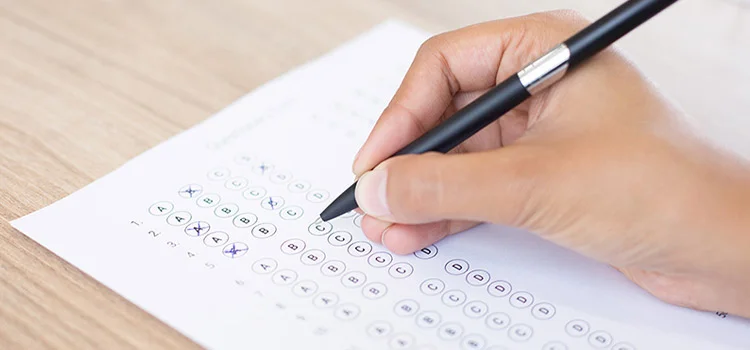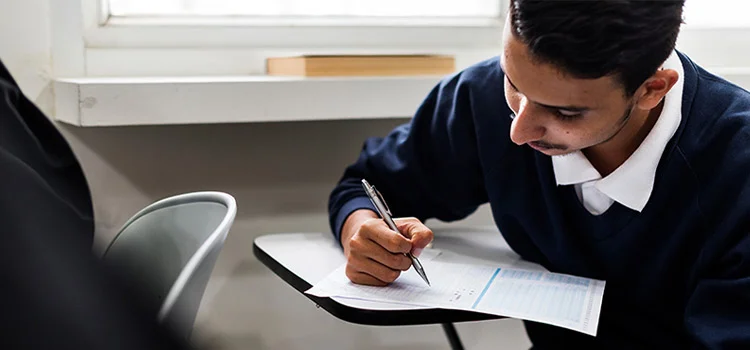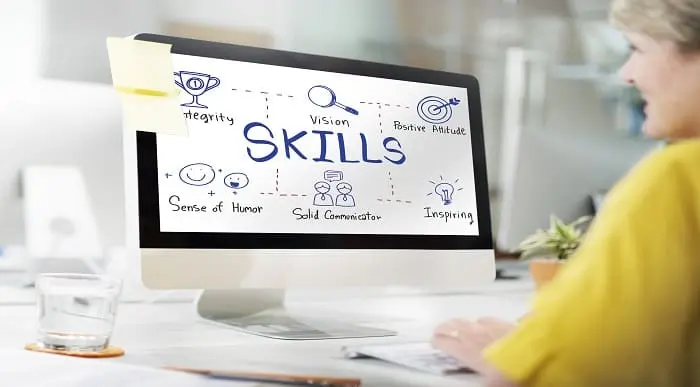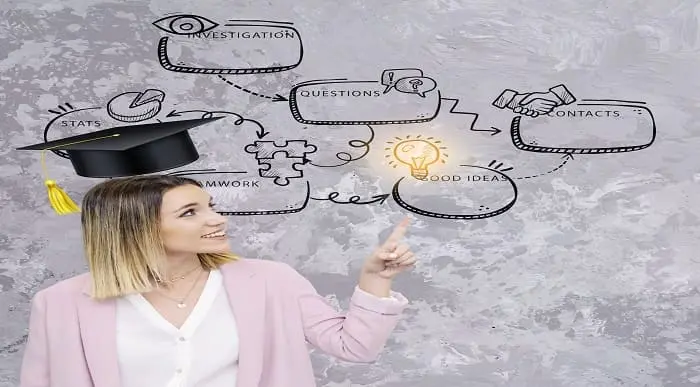Functional Skills
Functional Skills Practice Tests: Justify Your Skills Before Seating Exam
If you’re browsing the internet with the search term “Functional Skills practice tests”, then it’s safe to assume that it’s not the first time that you’ve heard of Functional Skills qualifications. They have become a household term for the UK citizens as more and more places are emerging where you will need them.
And yes, just like any other exam, it’s better if you try out some mock Functional Skills tests to see where your current knowledge level lands on. Otherwise, it’s just a waste of some money. That’s what this blog is all about.
So, let’s get started.
But first, we’re going to assume that you still need some clarification as to what Functional Skills is. Let’s tackle that first before diving deeper.
Table of Content
- What is Functional Skills?
- Why is Functional Skills practice test important?
- Types of Functional Skills test (By Subject and their respective Levels)
- What you’ll face under different levels of Functional Skills?
- How Functional Skills exams are taken?
- Functional Skills practice test
- Are you getting poor marks on the practice tests?
- Conclusions
- FAQs
- What to Read Next:
What is Functional Skills?
“Functional skills are practical skills in English, mathematics and information and communication technology (ICT) that allow individuals to operate confidently, effectively and independently in life and work.”
Department for Education and Skills
The Department for Education and Skills has said it plenty in their excerpt above. Functional Skills are fundamental English, Maths and ICT (Information and Communication Technology) skills that people use in their personal and professional life on a regular basis; the keyword being “on a regular basis”. Most of the aspects of these skills are so fundamental that they’ll help you in your personal life. So, you can imagine their impact on your professional life as well. This is also the very reason the governments of the present and the past have highly valued these skills. They encouraged people to learn them and developed various means to make them easily accessible to people.
As these skills are ‘functional’, you can apply your core skills to real-life situations once you learn them.
Most training and education programmes include English and Maths as essential subjects. Diplomas, Foundation Learning Programmes and Apprenticeships- all these require you to have Functional Skills in case you don’t have your General Certificate of Secondary Education (GCSE).

Functional Skills Maths Level 2
- Accredited Courses
- Tutor Support Included
- 3 Installment Plan at checkout
- 14 Days Money Back Guarantee
Why is Functional Skills practice test important?
The Functional Skills practice test is important in several senses.
- You can understand where you stand as a candidate.
- It will help you grasp the idea of the Functional Skills test.
- It will boost your confidence.
Even if we go and say that the Functional Skills practice test is more important than the actual test itself, it’d not be a stretch at all. So, let’s discuss the two points that we just stated.
You can understand where you stand as a candidate
Studying for a test is one thing. Your capability to do well in a test that is based on your studies is another thing. Most students who appear for a test may not even be aware that they are not ready for a test yet. Their studies need more depth.
That’s where practise tests come in. You can actually gauge where you stand as a candidate for the exam and figure out whether sitting for the exam would be a waste right then.
Practice tests will also bring out the gaps in your studies. You’ll know where you need to focus more and if you’ve left anything out that you thought you knew, but you, in fact, don’t.
It will help you grasp the idea of the Functional Skills test
Every test is different. If the goal is just to learn, then your studies would follow a certain pattern. However, if the goal is to pass the test, then the pattern would change. Lastly, if the goal is a mix of both, well, then you’ve got to strategise to accommodate both.
In the case of Functional Skills, I’d say a mix of both is the most common. As these skills are not theoretical that you may or may not use your entire life, Functional Skills are there to make you more efficient in a number of fields including communication, awareness about modern technologies and how they assist our daily lives.
So you learn Functional Skills to increase your communication skills, analytical aptitude and so on, but what about the tests? That’s where practise tests come in, once again. Once you get the hang of the exam (like the mark schemes, for instance), you’ll know which sections carry most of the weight. You can have an idea of time management, which is arguably the most important factor in a test of any kind. You’ll also have an idea of how hard or how easy should it be for you to pass the exam.
Confidence boost
Finally, practice tests give us a huge confidence boost. This may sound cliche, but it’s a cliche for a reason. This is a tried and tested method of doing well in the exam. You don’t have to go to the actual test and waste your time around strategising as you already know the question pattern. You also know your strong and your weak zones. The only bit that you have to do is read the question paper and start answering in the pattern that is most comfortable with you.
This confidence of “I know what I’m doing” will keep you far ahead in the sense that, even if you have the same level of preparedness for the test, sitting for the exam is not a good idea without knowing what strategies will help you the most in the exam.
Types of Functional Skills test (By Subject and their respective Levels)
There are three levels of Functional Skills:
- Entry-level
- Entry-level 1
- Entry-level 2
- Entry-level 3
- Level 2
- Level 3
You will be tested for your aptitude for three subjects: English, Maths and Information and Communication Technology (ICT).
All the Entry-levels are below the General Certificate of Secondary Education (GCSE) level.
Level 1 Functional Skills is the same as getting a GCSE grade D-G (2017 grade 1-3).
Level 2 Functional Skills is comparable to getting a GCSE grade A*-C (2017 grade 9-4).
What you’ll face under different levels of Functional Skills?
The three Entry levels of Functional Skills (Entry-level 1, Entry-level 2 and Entry-level 3) are fairly basic. They aren’t something you can’t pass with a little bit of effort, even if your basic knowledge of English, Maths, and ICT is very poor. So we’re not going to talk about them here.
Instead, let’s talk about the GCSE equivalent levels, i.e. Level 1 and Level 2 Functional Skills.
So, what are the topics that are covered under these three subjects?
A brief glimpse at a rough sketch of the curriculum will give you an idea.
Functional Skills Maths Level 1 & Level 2
The Maths qualification section of the Functional Skills covers four separate elements:
- Data handling,
- Numbers,
- Measurement,
- Shapes
- Data handling
You’ll learn to read numerical information from lists. Then sorting and classifying objects using a single criterion will also be taught here.
For example, classifying students under 18 and over 18 under different banners and then sorting them accordingly.
You’ll also learn to handle data like simple charts and diagrams like tally charts or block graphs.
- Numbers
Here you’ll be taught to handle different types of numbers like whole numbers (1, 2, 3, 4, ..and so on). You’ll also learn the operational symbols like Arithmetic Operators and their function in maths.
- Measurement & shapes
Measurement and shape refer to things like recognising coins and writing them with their correct symbol ($ or £). The same thing is true of other metrics like length, width, height, weight and capacity. Identifying common shapes like a circle, a triangle or a 3D shape like a cube or a cylinder is also included here. Positional vocabulary that describes where you are, like left, right or east, west etc, is another part of the math programme.
Then comes metrics relating to time. Things like the number of days in a week, months and seasons in a year and their sequence or reading a digital or analogue clock will be in your test.
Functional Skills English Level 1 & Level 2
Functional Skills English can be broken down into three distinctive parts:
-
Reading
When you independently understand and decode written language texts that have a meaningful context, that is defined as reading.
In the Reading component of the Functional Skills assessment, you can take the help of technology such as screen readers. However, it has to meet the standard of learners reading independently. You can also take help from a human scribe to record your written answers. But, the scribe isn’t allowed to read to you as that violates the standard of independent reading.
-
Writing
When you independently construct a piece of written text in a purposeful context, that is considered writing.
You can use technology like voice recognition if it helps you. However, unlike the reading assessment, you cannot use a human scribe here. It violates the standard of independent writing.
-
Speaking, listening and communicating
Speaking, Listening and Communicating refers to all types of non-written communication methods. This type of communication occurs face-to-face or virtually over a phone call and/or video conference.
To ensure that the test does not create any barriers for people who have a speech or hearing impairment, each individual word of the component can be interpreted in its own way to make it more inclusive. Learners can be assessed for this component using British Sign Language or augmentative speech equipment.
Since a Functional Skills programme is ‘fundamental’ in nature, it’s okay if the learner has no prior qualification or knowledge. It isn’t expected of them.
Functional Skills Information and Communication Technology (ICT)
You’ll be tested for your ICT knowledge in your Functional Skills ICT test.
In today’s day and age, you can’t work effectively, by any stretch of the word, without having sound Information and Communication Technology (ICT) knowledge. But, that doesn’t mean you have to learn to code the next Facebook. Sound ICT skills/knowledge refers to the skills to use technology for work, study and life.
Using a computer for basic stuff, browsing the internet, and various electronic communication methods like email, SMS, or Messenger software like Facebook Messenger, Microsoft Teams, Skype or Zoom- all these fall under what we’re referring to as sound ICT knowledge.
Now, “using a computer for basic stuff” is a very broad term, understandably. But there is no reason to fear, even if you’re not technologically sound enough. All you’ll have to learn is some common word processing, spreadsheet and presentation software like the Microsoft Office suite (Word, Excel & Powerpoint, for example) or the Google suite (Google Docs, Google Sheets & Google Slides, for example). Once you learn one, the others will become very easy to grasp for you as all of these software are very similar to each other.
They do have their depths. But for the majority of us, learning the basics is more than enough. These basics will hardly take a week for someone to learn.
So, what are the goals here?
The goal here is to enable us to do research, interpret results and solve problems using technology. However, the research side of things is mostly done using the help of the internet.
To recap, these are most of the topics that will be in your Functional Skills ICT test.
- Basic usage of a computer like organising files, folders and basic troubleshooting of common issues on a computer.
- Basic understanding of word processing, spreadsheets and presentation software.
- Basic usage of the internet for communication through email and to do research. Carrying out these tasks safely and effectively.
Develop Your Team to Lead The Industry
Get fully accredited thousands of high quality online courses taught by the world’s leading experts suitable to companies of all sizes.
How Functional Skills exams are taken?
You have to register for the Functional Skills qualifications exam. You can book a physical exam or a remote exam conducted online. The physical exam is paper-based. Understandably, most people opt for the remote or the online exam option as this is the most convenient for most people, and the current pandemic situation only escalated it. However, if you still want to sit for a physical exam, contact Lead Academy as they are accredited by Edexcel Pearson and they can manage you the exam centre where you’ll sit for your exam.
In the case of remote exam, you’ll obviously need to follow some procedures which will allow the invigilator to monitor you as you sit for the exam. You’ll need:
- A laptop with a good enough configuration for the exam
- A smartphone or a tablet with a camera capable of running a proctoring software
- A good internet connection
Your laptop doesn’t need to be cutting edge. If it can run the latest versions of browsers like Google Chrome, Mozilla Firefox or Microsoft Edge fairly well, there’s a good chance that your laptop is compatible with the exam requirements. You’ll also need another device like a smartphone so that it can be placed behind you. A proctoring software will be installed on it. The goal here is to monitor the whole room you’re in and make sure the exam is taken with full transparency and fairness.
However, a good internet connection is a must as the exam will be taken online. You should strongly consider that a bad internet connection is not an option in this case.
Once you register for the exam, the exam board/body will contact you to run some personal data checks and pre-assessment checks on your devices to see if they comply with the minimum exam requirements. Here’s a quick video that explains these processes very clearly.
Functional Skills practice test
Here are some links where you can practice for Functional Skills qualifications.
Functional Skills practice test:
Maths practice tests
English practice tests
ICT practice tests
Are you getting poor marks on the practice tests?
Or, more accurately, are you failing your Functional Skills exam as you will be graded either pass or fail in your Functional Skills test.
Here are some quick tips to improve your Functional Skills.
-
Practice
The most effective way to develop Functional Skills is to use them at every chance in your life. It will give you a solid base to build upon.
-
Study
Studies are more relevant in the context of your Functional Skills assessment exams. You need to internalise what you learn, and hence your study is also important.
-
Use of a supportive trainer
The internet is a sea of resources. If you don’t want to waste time behind a trainer who teaches offline for some as basic as Functional Skills, then look for online trainers. Training centres like Lead Academy are famous for their Functional Skills course programmes. The biggest upside here is that you can learn at your own pace in the comfort of your home. One of the most popular courses from Lead Academy is their Functional Skills Maths Level 2 Qualification course, where you’ll also sit for Maths level 2 practice papers.
However, it’s understandable that not all people are built equal. You may still be struggling with a specific subject or a specific topic on the subject. Lead Academy also thought of that, and they brought you the one to one tutor support. Just contact Lead Academy, and they will assist you with a tutor who can help with the specific issues and gaps in your studies that is making you fail your Functional Skills qualification exam.
On-Demand Accredited Courses
Analyze data quickly and easily with powerful PHP library! All datasets included where beginners welcome!
Conclusions
If you’ve read the whole blog carefully, you already know how important Functional Skills practice tests are. They have been designed to help you. Even if you don’t need help with your studies, the confidence boost is still a huge factor in exams like the Functional Skills qualification test. So, use the practice tests as the valuable resources that they are. What’s more, they are just one click away! I said it before, and I’ll say it again- skipping them will most often be a waste. Ask those who have sat for the Functional Skills qualification exam before, and they’ll say the same thing.
FAQs
What are Functional Skills tests?
Functional Skills tests are assessments designed to evaluate an individual’s understanding and application of basic skills in English, Maths and ICT.
Can you do Functional Skills test online?
Yes, Functional Skills tests can be taken online and are accessible to anyone with an internet connection.
How do you prepare for Functional Skills?
Preparing for Functional Skills tests can involve learning the core skills in a variety of ways, such as taking online courses, solving past papers, enrolling in a class, or studying independently.
What is an example of Functional Skills?
For example, preparing for the English Language Functional Skills test may involve studying grammar and punctuation rules, reading comprehension exercises, and practising writing skills
What are the levels of Functional Skills?
There are three levels of Functional Skills:
- Entry-level
- Entry-level 1
- Entry-level 2
- Entry-level 3
- Level 2
- Level 3
Is Functional Skills a GCSE?
No. But Level 1 and Level 2 Functional Skills are equivalent to certain GCSE grades.
What careers can this lead to?
Functional Skills qualifications are highly valued by employers. In most jobs, they are applicable. Additionally, if you want to pursue further studies, Functional Skills are basically an essential part of that venture.
For instance, Level 2 Functional Skills are becoming more and more acceptable to Universities. But, it depends on the type of Higher Education course you want to do. They take less time to study than the General Certificate of Secondary Education (GCSE).
However, you do have to remember that some professions do require GCSE’s in English and Maths.
Need some advice on Functional Skills?
Here are some quick tips to improve your Functional Skills.
Practise
Study
Use of supportive trainer
What to Read Next:
- What is NVQ Level 3 Equivalent to – Qualification and Equivalent Degree
- How to Become a Functional Skills Teacher – Step by Step Guide
- Functional Skills Pass Rates – Comprehensive Analysis Update
- Does Functional Skills Count as a GCSE?
- What is Functional Skills Qualification? All You Need to Know About This
- What is Pearson Functional Skills?
- Can You Go to University with Functional Skills?












